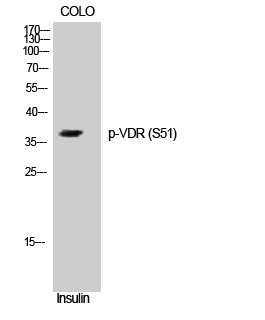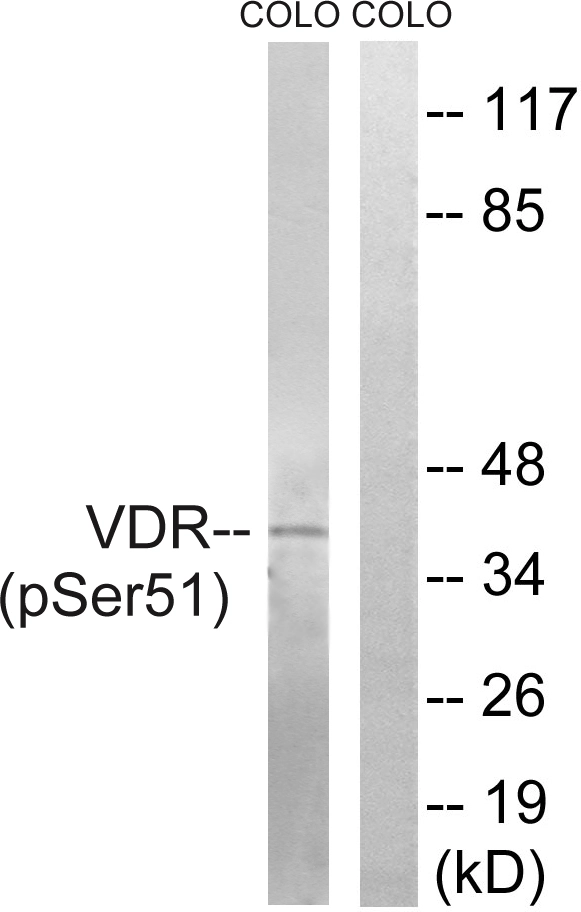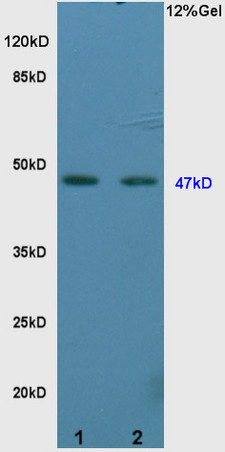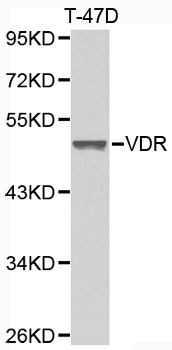
WB analysis of COLO cell lysate using GTX86040 Vitamin D Receptor (phospho Ser51) antibody.
Vitamin D Receptor (phospho Ser51) antibody
GTX86040
ApplicationsWestern Blot
Product group Antibodies
ReactivityHuman
TargetVDR
Overview
- SupplierGeneTex
- Product NameVitamin D Receptor (phospho Ser51) antibody
- Delivery Days Customer9
- Application Supplier NoteWB: 1:500~1:1000. *Optimal dilutions/concentrations should be determined by the researcher.Not tested in other applications.
- ApplicationsWestern Blot
- CertificationResearch Use Only
- ClonalityPolyclonal
- ConjugateUnconjugated
- Gene ID7421
- Target nameVDR
- Target descriptionvitamin D receptor
- Target synonymsNR1I1, PPP1R163, vitamin D3 receptor, 1,25-dihydroxyvitamin D3 receptor, nuclear receptor subfamily 1 group I member 1, protein phosphatase 1, regulatory subunit 163, vitamin D (1,25- dihydroxyvitamin D3) receptor
- HostRabbit
- IsotypeIgG
- Protein IDP11473
- Protein NameVitamin D3 receptor
- Scientific DescriptionThis gene encodes the nuclear hormone receptor for vitamin D3. This receptor also functions as a receptor for the secondary bile acid lithocholic acid. The receptor belongs to the family of trans-acting transcriptional regulatory factors and shows sequence similarity to the steroid and thyroid hormone receptors. Downstream targets of this nuclear hormone receptor are principally involved in mineral metabolism though the receptor regulates a variety of other metabolic pathways, such as those involved in the immune response and cancer. Mutations in this gene are associated with type II vitamin D-resistant rickets. A single nucleotide polymorphism in the initiation codon results in an alternate translation start site three codons downstream. Alternative splicing results in multiple transcript variants encoding different proteins. [provided by RefSeq, Feb 2011]
- ReactivityHuman
- Storage Instruction-20°C or -80°C,2°C to 8°C
- UNSPSC12352203







